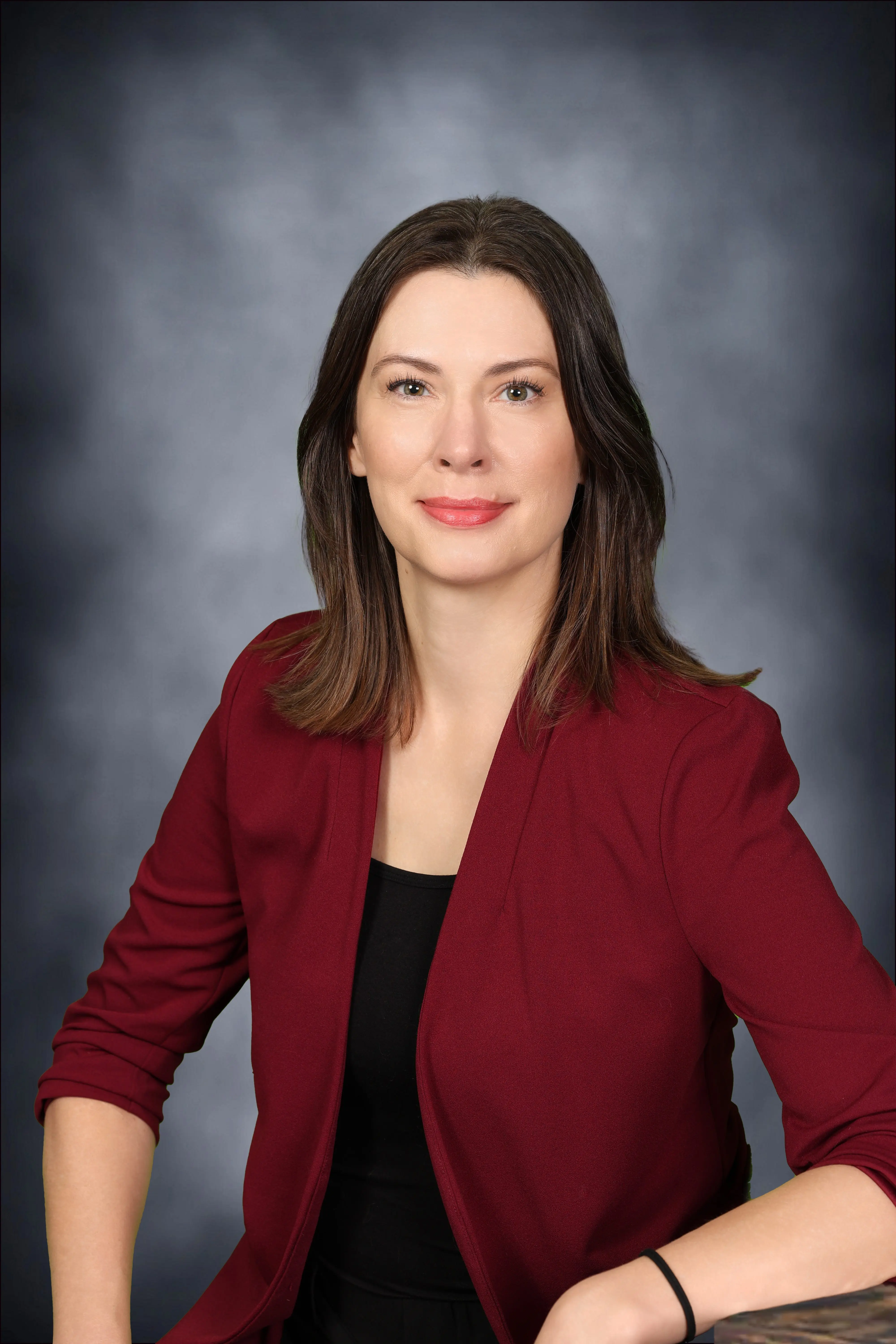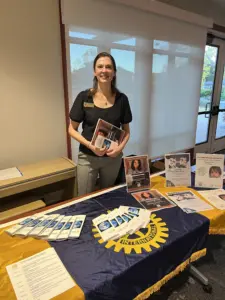
Attorney Kathleen Defever lives and practices in Tiburon. [Photo by Lisa Johnson]
The notion of becoming an attorney never crossed Kathleen Defever’s mind when growing up in the countryside near Lansing, Michigan—much less, pursuing a career as a public insurance adjuster, representing policyholders in negotiating claims with insurance companies.
Little did she know, decades later it would prove a “hot” legal career path in fire-heavy Northern California.
From libraries to law
When she was a little girl, Defever envisioned becoming a librarian. But later, when it was time to consider a career, “People who I respected in their fields gave me advice on what I might be interested in,” she says. They told her that even if she didn’t practice law, a law degree would be useful, and she wouldn’t regret it. “That’s so right. It trains you to analyze situations and is an extremely useful tool,” she says. And once she’d earned her Juris Doctor, it put her on the path to a career she didn’t imagine. And led her west where she would make Northern California her home.
Defever, 47, started college at Michigan State University in Lansing. Her focus was interdisciplinary studies in social science and international studies. “Michigan is a massive university. It’s easy to get lost,” she says, but the benefit was melding. “You could take courses at any college and put together your own degree,” she explains. After three years, she transferred to DePaul University in Chicago, enrolling in its International Studies program—and while there, she got a taste of city life. Defever went on to earn her law degree at DePaul University School of Law, and her studies required an internship, which she served at the office of the Federal Public Defender for the Northern District of Illinois in Chicago. Her first position as a full-fledged lawyer was there as well. “I stayed for another year after law school, and the training was fantastic,” she says. Her job was to serve as counsel for indigent individuals and provide criminal defense for people charged with federal offenses. She interviewed clients, conducted investigations, went out in the field and handled arraignments at the federal level. “People would get arrested, and they’d be held in a room, and we’d show up and introduce ourselves and ask them some questions,” she recalls. Some were high on drugs, while others were traumatized, and their crimes tended to be bank robberies, mail fraud and major drug offenses, as well as running child pornography rings.
“If women didn’t want to work on those cases, they didn’t have to,” she says. “And I didn’t.”
Westward ho
In 2008, Defever decided to move to California and anticipated working at either the Office of the Federal Public Defender in San Francisco or a law firm that defends white-collar crimes. But before she landed a position, the economy crashed, and the recession was taking hold—she started getting responses from the places she’d hoped to work saying they were no longer hiring (quite the opposite, in fact, they were letting people go).
Then she met an attorney with a practice in insurance law, who offered her a job as a clerk. “It sounded so boring,” she says, and she turned him down three times before finally relenting and saying yes. The experience was a revelation. Far from being bored, she discovered that she loved insurance law. “It’s so interesting, because it’s a hybrid of different types of law,” she explains, adding that she’s a big-picture person who likes to take the pieces to make something bigger and better. And insurance law allows her to do that.
Defever also has a passion for helping others and worked on disability cases at first, which she found satisfying. “It’s so nice to work with people who really need your help,” she says.
Over time disability insurance changed, as companies began to write policies differently, and the number of people with disability policies decreased. Meanwhile, property claims were increasing—she describes it as a natural progression according to the market—and she had an opportunity to expand her skills and get another perspective on insurance by working as a public insurance adjuster for the Greenspan Company, which was looking for people with a background in law. The fields overlapped, and “They hired me to be an adjuster, and I went out and handled claims for two years,” she says. She found that her law degree was useful, and the work was exciting, but also tragic. “Being out in the field after a wildfire and hearing the stories is moving,” she says. “I wish that on no one.”
Defever found that helping people get their insurance claims settled and seeing them rebuild was satisfying, but the process was complicated. She decided that a degree specifically in insurance law would be helpful, and she earned a master’s degree from the University of Connecticut in Hartford, completing coursework through videoconferencing and two in-person visits a year, eventually graduating in 2010.
The area she served as an adjuster stretched from Santa Cruz to Redding, but she mostly worked in the Bay Area. The 2017 Tubbs Fire took place during her tenure, but she didn’t work on those claims, because she was still in training and was assigned to smaller fires. Still, she had clients who’d lost people, pets and heirlooms in fires, and so rather than simply looking at a site to evaluate the property loss, empathy and caring for a client‘s emotions were part of the job as well. The work required substantial energy—mental and emotional as well as physical—and the sites she visited were often dangerous. She had to wear a mask for protection from asbestos, ash and toxic materials, which were often in the air, because moving things around disturbs those substances. Firefighter boots were also part of her protective gear to prevent injury if she stepped on nails. She recalls going to one house, where half the downstairs and half the upstairs had burned. “We needed to go upstairs, but we didn’t know if it was safe,” she says. “You have to make some big judgment calls. It’s an exciting job, but also very demanding.”
Her experiences as an adjuster also gave her insight into the importance of getting help after a loss. Claims are complex, she says, and if you don’t start on the right foot, you won’t have a good outcome. “You have to be very exact and have a deep knowledge of what your rights are, or you’ll lose at least 20% of your coverage,” she explains. Property owners also need to be able to answer questions. Did an inspector come? What’s your policy coverage? Will personal property be replaced? In addition, knowledge of different categories of coverage is essential if you are to reconstruct your life, whether the loss is a home or a business. She points out that many businesses that closed during the COVID-19 pandemic were unable to claim their loss of income because their claims weren’t handled well and their policies tended to be vague. “You have to know how to present yourself to know how to present your claim,” she says. “Please ask for help. Do not try to handle your claim on your own.” She explains that the process is confusing, putting people at risk of losing up to 50% if they file a claim themselves, and they could inadvertently do something that makes a claim more difficult to resolve successfully. “You must handle a claim carefully from the beginning. You won’t recover later,” she says. She can look at properties that wildfires destroyed in Sonoma County and tell who had help and who didn’t. The most impressive rebuilds are those whose owners hired professionals, because they got larger settlements.

Public insurance adjusters are licensed, and the field is relatively new. They became prominent after insurance companies changed, and making money became the primary motivator, she says. “It’s a good industry that really helps people,” says Defever, but insurance companies often try to discredit them, because they lose so much money when people hire them “They have to pay 30% more to people who get help, and that adds up to millions of dollars,” she says, so they’ll try to dissuade a client from seeking outside assistance. She also found it disturbing when California Insurance Commissioner Ricardo Lara issued a warning about public insurance adjusters this past January after the catastrophic wildfires in Southern California, suggesting their intentions might be less than honorable. “Try to settle your claim directly with your insurance company before hiring a public adjuster or an attorney,” Lara said in an information guide titled “Don’t Get Scammed After a Disaster.”
“To scare people away from getting the help that they need is really upsetting,” Defever says.
A place to call home
San Francisco and the North Bay beckoned to Defever because it’s a place where so many new ideas are born. “For me, it’s always about learning and discovering new things,” she says. When she first arrived, she visited a friend who lived in Marin County, and the more she saw, the more attractive the area became. Much of the appeal was its proximity to a world-class city, while also providing habitat for animals. She grew up on a farm and missed nature and the tranquility of rural life when she lived in Chicago. But in Marin, she could have both a big-city experience and the natural environment and slower pace that comes with open space and small-town life. At first, she lived at Larkspur Landing and took the ferry to her job in the city. In 2010, she moved to Tiburon, where she now lives with her partner Richard Grossman, two cats and a parrot in a hillside home overlooking San Francisco Bay. Fog obscured the view on her first visit, and “I had no idea you could see San Francisco,” she says.
She is now the principal attorney at Defever Law, a sole proprietorship in Tiburon, specializing in insurance law and acting as an advocate for policyholders.
For the past couple of years, she’s also spent time in Belgium, where she is working on a PhD in insurance law at the University of Ghent. “There are no PhDs in insurance laws in the United States. You’re hard-pressed to find an insurance course in a law school in the U.S.,” she says, pointing out that insurance gets more attention as a discipline in Europe. Insurance is a huge industry in this country, but it’s an overlooked field in American law, so she views becoming an expert in insurance law as a professional opportunity and a chance to learn something new. She already advises law firms, and adding to her repertoire will allow her to create a new sub-specialty and offer further expertise. The deeper knowledge she is acquiring will help her to write amicus briefs, and she’d like to serve as an expert witness and believes that having schooling and education that nobody else in the country has will allow her to accomplish that goal. “I’m creating a new niche in the insurance field,” she says.
Her free time is fleeting, but she devotes much of it to giving back to her community. She’s served as a member of the Tiburon Planning Commission since 2018 (and even ran unsuccessfully for town council in 2020) and believes the work is important, because town meetings are opportunities for any local resident to be heard on any issue.

“I love listening, learning from townspeople and then analyzing the issue before me and crafting the best solution that we can,” she says. She acknowledges that the results aren’t always perfect, but she likes putting together something that has the potential to bring happiness and make the world better. She’s also president of the Rotary Club of Tiburon-Belvedere, and finds that with Rotary, she’s with like-minded people, whether it’s here or abroad. “We work together to make the world a better place. That is the best thing you can do in this life. It was instilled in me by my family. Never take your fortune in life for granted.
“It’s your responsibility to give back to your fellow humans.”



